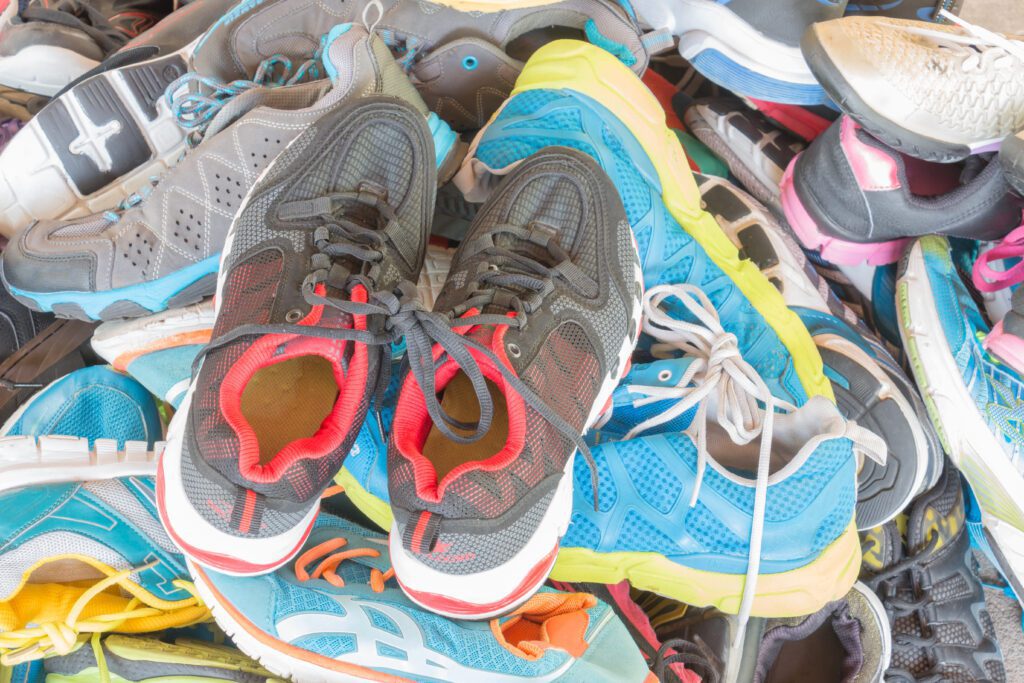A social site that brings you positive vibes. A green campaign built on lies. Science Fiction writers encounter the future – and don’t like it. And a football campaign so exciting you can fall asleep to it. Enjoy!
POSITIVELY PINTEREST

Your FYP is designed to keep you hooked, and it works. Latest figures suggest the average person spends upwards of 40% of their waking hours on an internet-connected screen, and would you believe we scroll an average of a mile a day?
There’s no shortage of people who say this is a cause for concern, but at least one platform is attempting to position itself as a source of positivity.
A new study via UC Berkeley’s Greater Good Science Center discovered that Pinterest makes you happy. What they actually said was that Pinterest “mitigated the consequences of physical stress on people’s daily positive emotion, preserving their capacity for feeling good”.
This study (obviously funded by Pinterest) had Gen Z college students divided into two groups. One group used Pinterest for 10 minutes a day over two weeks, while a control group solved jigsaw puzzles for the same amount of time.
As end-of-year exams approached, the students’ stress levels naturally increased. However the study found that the Pinterest users were more inspired and less stressed. At least we think that’s what they meant by “higher levels of inspiration make it easier to relax. This higher level of relaxation was uniquely “unlocked” by seeking inspiration on Pinterest, and was not true of the control condition.”
While we can all probably think of many ways to ‘unlock’ higher levels of relaxation, perhaps we should start our mornings with Pinterest and coffee? Read the full story here.
Not the Best Foot Forward

In 2021 the petrochemical giant DOW launched a headline-grabbing recycling program in Singapore. The campaign promised to divert 170,000 pairs of sports shoes from landfill, and instead turn them into athletic tracks and playground surfaces.
Now, a Reuters investigation has found that instead of being recycled, many of the shoes ended up for re-sale in Indonesia, where it’s illegal to import second-hand goods.
Five months ago, Reuters inserted a tiny tracker into the soles of 11 pairs of rubber-soled shoes and donated them to the program.
Using a smartphone app, the investigators were able to track the movement of each shoe. Numerous pairs lost their trackers after reaching Indonesia, but Reuters was able to track one pair of blue Nike running shoes to a mound of shoes in a second-hand shoe store in Batam, Indonesia, just 12 miles south of the Singapore border.
None of the 11 pairs of shoes were turned into exercise paths or kids’ playgrounds.
The investigation highlights the scourge of ‘green-washing’, a term coined to describe a company “emphasising their sustainability programmes in order to overshadow their environmentally damaging practices”.
Not only is the campaign built on BS but it highlights the need for tighter industry standards when it comes to marketing these sustainable practices. Having a sustainability pledge isn’t so you can sell more goods to customers, it’s about doing the right thing. Greta Thunberg didn’t walk so marketing companies could run, guys.
AI WRITERS ON THE LOOSE

The time has come. Grab your tin foil hat, your unedited Roald Dahls, and run to your bunkers. AI is now writing fiction.
This week, the well-known sci-fi magazine “Clarkesworld” stopped accepting submissions after an absurd flood of AI-generated stories. By February 20th, of 1200 submissions received, 700 were legitimate, and 500 were AI generated stories.
According to Neil Clarke, the editor-in-chief of Clarkesworld, these submissions come from “hustlers wanting to make a quick buck” since the magazine pays their contributors for their stories.
Fortunately, for now, identifying the AI stories seems a relatively easy job (to Neil Clarke at least), since most of the AI stories have really poor writing quality, and sometimes the stories have even the same title and the same character’s name. Let’s be wary, though, of the day when these AI generated stories are not so easy to spot.
Read about it here.
THEATRE OF DREAMS FOR SWEDISH FOOTBALL FANS

Telling a football fan their club would only play amongst Europe’s elite clubs “in their dreams” is not generally considered a good way to get them to like you. Swedish betting company, Oddset doesn’t care. They have kicked on and turned that idea from a dream into a reality… and back to a dream again.
With Stockholm based agency Perfect-Fools, Oddset are helping Swedish football fans to dream about their favourite team’s progress in their quest for European glory, all as they catch forty winks.
First, they trained an AI bot with squad data for each team in the Swedish football league system. Then they generated commentaries for 192 imaginary matches and used text-to-speech synthesis to output 17,280 minutes of play-by-play action The final result was compiled into 32 different dream commentaries which fans can listen to as they sleep.
Currently this is only available in Sweden but as AI continues to dominate the tech headlines we wonder will we see fans from football clubs across Europe supporting their teams from Row Zzzzzzz.
See more about it here.
